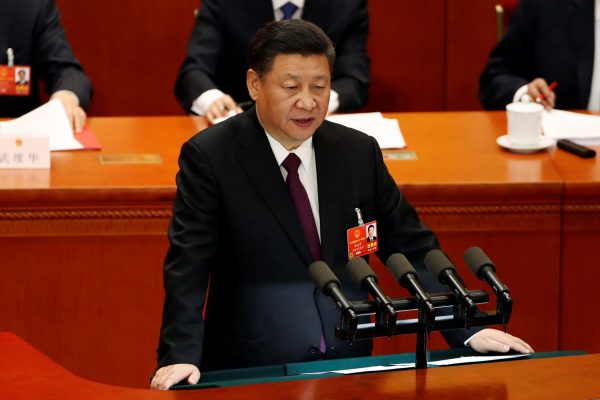During China’s reform era, the central government devolved some of its powers to local governments and heavily relied on them to implement policy. This allowed for policy experimentation at the local level and empowered officials to adapt policies to meet local conditions.
Despite being a unitary state, subnational governments in China have long carried out many important government functions, including building infrastructure, developing the local economy and administering social welfare programs. Local governments in China are far more fiscally decentralised than in many other countries. In 2017, subnational governments generated 53.4 per cent of total government revenues and covered 63.2 per cent of total government expenditures. In comparison, subnational governments in OECD countries (which tend to be more decentralised than post-communist and developing countries) generate average local expenditures of around 32 per cent and average local revenues of around 19.1 per cent.
Many have attributed China’s economic dynamism over the last 30 years to the positive effects of this decentralised system. Not only did it stimulate innovation and experimentation but it also encouraged competition between local governments. The decentralised system also constrained local governments’ behaviour and provided them with a range of positive incentives to foster local economic growth.
Nevertheless, since the founding of the People’s Republic of China, the central leadership of the CCP has always monopolised political power. The centre sets the agenda and creates political objectives, but relies on the localities to administer them. While there were periods of pluralisation in the Chinese policymaking process, it has always happened under centralised political control or in line with the macro-political programs of the centre. That is why it is impossible to talk about the state without the Party. This was true before President Xi Jinping and will likely be true after him.
Yet much has been made of Xi’s recentralisation of political power. From not selecting a clear successor to abolishing presidential term limits, Xi has made it clear that he holds personal power not seen in a leader since Deng Xiaoping. Xi’s personal sway over contemporary politics is undeniable, but how has it actually altered central–local relations?
The decentralisation that occurred during the reform era consisted of three different components. Administrative decentralisation refers to the devolution of central authority to subnational governments to make decisions about policy implementation. Fiscal decentralisation is the process through which government revenues and expenditures are allocated across different levels of government, which results in local revenues and expenditures taking up a larger share of the total government budget. Political decentralisation describes the phenomenon where subnational governments make policy decisions that are independent from higher-level political authorities.
China’s experiment with decentralisation during the reform era embraced administrative and fiscal decentralisation while keeping political power highly centralised.
Even as Xi consolidates personal power and overrides post-Mao norms of collective leadership, he must still rule through the Party apparatus. But it is the changes to the administrative state under Xi that have had the largest impact on central–local relations.
Most famously, Xi’s anti-corruption campaign has shaken local bureaucracies to their core and led to paralysis. Local officials know that they are losing their formerly high levels of discretion. The newly formed National Supervisory Commission expands the jurisdiction of anti-corruption efforts and institutionalises the anti-corruption campaign into state governance. This increasingly centralised authority will only lead to stricter administrative control and oversight of local officials and a higher price for noncompliance.
Another important administrative reform is Xi’s promulgation of ‘top-level design’. Although previously the domain of local governments, economic policy is increasingly centralised under Xi’s authority. From state-owned enterprise reform to technology and industrial policy, top-level design has effectively paralysed innovative local officials who are now afraid to engage in administrative action or policy implementation.
The message on administrative recentralisation has been further cemented by central policy documents. In March 2017, the CCP Central Committee released a decision on reforming Party and state institutions. The decision emphasised the core leadership of the Central Committee in policymaking, stressed the undesirability of decentralisation and overlapping responsibility, and called on local governments to faithfully execute orders from the centre. Policy adaptation and noncompliance at the local level will decline as Xi increases oversight of the administrative state.
China’s leadership has always set the policy agenda from the centre in order to maintain political control. The concept of democratic centralism is written into the Party and state constitutions and remains a core tenet of contemporary governance in China. While Xi’s personalisation of political power is important, it is his recentralisation of administrative power to ensure greater compliance with central directives that has had the most significant impact on central–local relations.
William Weightman is a Fulbright Fellow based in Chengdu, China. His research includes intellectual property law, intellectual property enforcement and technology policy implementation.

